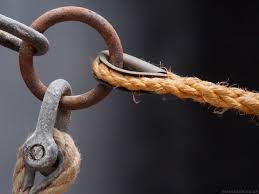…by Matt Robert…
 This will be our last post of the season. Not only is it smart and sensitive but it’s also warm hearted and optimistic. An ideal note to end on — until January. In the meantime, I wish you all an incredibly happy or at least reasonably happy holiday, however you define “holiday” and however you define “happy.”
This will be our last post of the season. Not only is it smart and sensitive but it’s also warm hearted and optimistic. An ideal note to end on — until January. In the meantime, I wish you all an incredibly happy or at least reasonably happy holiday, however you define “holiday” and however you define “happy.”
 Most people know the word “trigger” as a cue that can initiate a negative behavior. It can be a person, a place, a familiar situation—anything that may compel somebody to return to a behavior they are trying abstain from. Common triggers include seeing a familiar bar or liquor store, running into a using buddy from the old neighborhood, something that causes undue stress… These are things people spend a lot of time avoiding in early recovery and figuring out strategies to manage more effectively.
Most people know the word “trigger” as a cue that can initiate a negative behavior. It can be a person, a place, a familiar situation—anything that may compel somebody to return to a behavior they are trying abstain from. Common triggers include seeing a familiar bar or liquor store, running into a using buddy from the old neighborhood, something that causes undue stress… These are things people spend a lot of time avoiding in early recovery and figuring out strategies to manage more effectively.
But what do we call the things that help re-engage a person in life—that give life meaning? Exercise, meditation, walking the dog, going to church—the things that help us hold on to sobriety, not threaten to  wrench it away like triggers do. We don’t have a word for things people try to learn or rediscover in recovery, to fill the gap once filled by using. These things are specific activities or events, just like triggers are, and they vary from person to person. Yet there is no general, generic term for these restorative habits and activities. “When I’m tense, I visit my grandchildren. That helps me stay sober and not want to drink. That’s a real (blank) for me.” That’s a real anchor? Refuge? A lifeline? A solace? That’s a real safety? The thing that stops the trigger? The diversity of what “trigger” connotes would be mirrored by its positive counterpart, although a widely accepted term doesn’t exist.
wrench it away like triggers do. We don’t have a word for things people try to learn or rediscover in recovery, to fill the gap once filled by using. These things are specific activities or events, just like triggers are, and they vary from person to person. Yet there is no general, generic term for these restorative habits and activities. “When I’m tense, I visit my grandchildren. That helps me stay sober and not want to drink. That’s a real (blank) for me.” That’s a real anchor? Refuge? A lifeline? A solace? That’s a real safety? The thing that stops the trigger? The diversity of what “trigger” connotes would be mirrored by its positive counterpart, although a widely accepted term doesn’t exist.
“Trigger” is a useful term mostly because it is a salient metaphor for the particular experience of being influenced to do something reflexively that you are trying to avoid. So what are some metaphors for a scenario that aids, or protects, or bolsters one’s recovery? Does it restrain you? Does it shield you? Does it protect you? Does it free you? Does it ground you? Does it support you?
One possibility is the word “tether.” It has several shades of meaning, all related to connection, protective  restraint and safety. For example, a boat tethered to the dock is safe because its mooring prevents it from being carried out into the open sea. A tether can be a lifeline followed to safety in a blinding blizzard. A tether is the air hose of a deep sea diver, conne
restraint and safety. For example, a boat tethered to the dock is safe because its mooring prevents it from being carried out into the open sea. A tether can be a lifeline followed to safety in a blinding blizzard. A tether is the air hose of a deep sea diver, conne cting him to the surface, to air, to safety. A tether connects a novice to a more experienced mountain climber. A tether keeps a spacewalking astronaut from floating off into the darkness. A tether keeps a dog close to its home, so it doesn’t run off and harm itself or others.
cting him to the surface, to air, to safety. A tether connects a novice to a more experienced mountain climber. A tether keeps a spacewalking astronaut from floating off into the darkness. A tether keeps a dog close to its home, so it doesn’t run off and harm itself or others.
 A tether can be used by an addict to stay attached and close to sobriety, not venturing past unsafe boundaries. And with time, the tether can be lengthened more and more, until it is no longer necessary. A tether is a metaphor for a connection to safety and sobriety. “After work, I always
A tether can be used by an addict to stay attached and close to sobriety, not venturing past unsafe boundaries. And with time, the tether can be lengthened more and more, until it is no longer necessary. A tether is a metaphor for a connection to safety and sobriety. “After work, I always  take a run to ease the stress of the day. That’s been a real tether for me.” Having a generic term for these activities or states could facilitate productive, forward-looking dialogue. And it could reinforce the primary importance of this aspect of recovery.
take a run to ease the stress of the day. That’s been a real tether for me.” Having a generic term for these activities or states could facilitate productive, forward-looking dialogue. And it could reinforce the primary importance of this aspect of recovery.
“Trigger” and “tether” are words that describe the two most important states in recovery—the urge to use and the capacity to abstain. They can be natural partners in our discussions, because they highlight both the negative and the positive aspects of recovery. What to pursue and what to avoid. Such discussions can support a healthier balance and move the focus toward the positive, not just the negative—from the prohibitive to the productive—and eventually the freeing.
The world of recovery has plenty of negative terms for relapse and its causes. Wouldn’t it be helpful to have a reliable, generic term for the positive stuff we do to keep it together?
Please contribute to the blog with any preferences, suggestions or recommendations for something to fill this void and enhance our discussions of recovery.

Leave a Reply